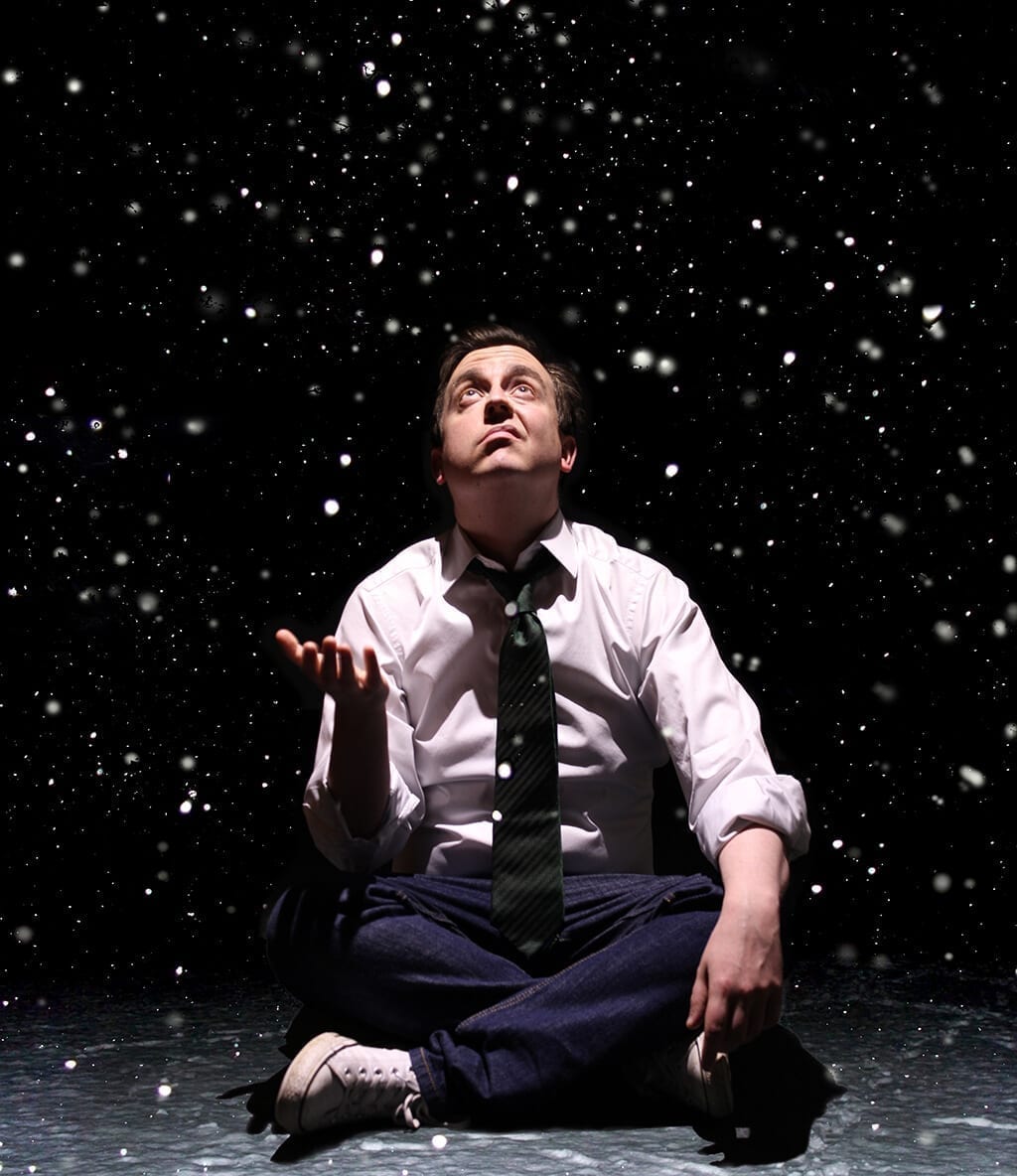Sons have a special bond with their fathers, says Paul to Tom in Last Christmas; they’re a model of how to be in the world. For Tom, this bond was broken and his model lost when his father died last Christmas. He has spent the subsequent year struggling to come to terms with the loss, and now must face it properly when he goes home on Christmas Eve.
Tom, Paul and all of the other characters in Last Christmas are conjured by Sion Pritchard, whose sing-song Welsh lilt provides a wonderful rhythm to his story-telling. Barely moving from the middle of a bare, starkly-lit stage, Pritchard takes us with Tom from a dire office Christmas party to an even grimmer Swansea pub, from his father’s graveside to his old family home.
Everywhere he goes, Tom has an endearing everyman haplessness about him. He tells us what he should have done and what he would have said in a way that feels very familiar. We have all walked away from a bad situation cursing our inability to do the right thing or say what we’re really thinking, and Tom verbalises these thoughts.
This internal window is at its most effective when Tom is talking about the more tender moments in his life, such as the tiny movements that can make or break relationships, which are beautifully conjured. He also captures perfectly the half-depressing, half-comforting feeling of returning to where you grew up; old friends like Paul and Bins and Spanner will feel familiar to much of the audience. Towards the end of the performance, his tender, difficult relationship with his mother in the wake of her husband’s death is close to heart-breaking.
Where the play is less effective are the scenes that slip into broad humour. It was performed at the Edinburgh Fringe in 2014 and, seen as one of a multitude of performances at the Fringe, its patchiness and flat notes would have been more easily forgiven. However, for a stand-alone night out, the stereotypes and unsubtle jokes seem jarringly out of keeping with much of the subtlety of the rest of this piece.
There is little new in mocking the virginal IT department or ridiculing the hopeless HR team, while smarmy aspiring middle-manager Suze seems to have come straight from central casting. The swearing, at first used to good effect, becomes overused and the monologues can sometimes feel like uncontrolled ranting. In something which is only an hour long, these flaws make Last Christmas feel quite uneven.
However, when Tom is at his most vulnerable, the play comes to life. The audience cranes forward as he struggles to come to terms with life and chuckles at his wry asides. For Tom, both last Christmas and this Christmas are difficult – they are about fatherhood, about being a son and becoming a father. This means that Last Christmas may not be standard feel-good Christmas fare, but it has enough of a touch of It’s A Wonderful Life about it to be worth a Yuletide watch.

